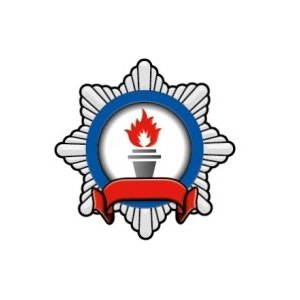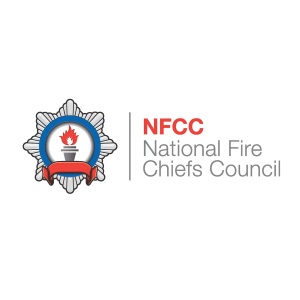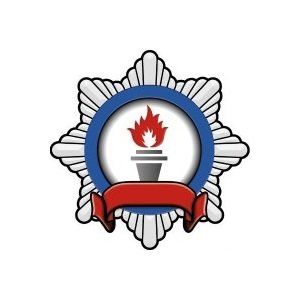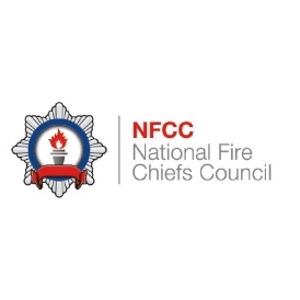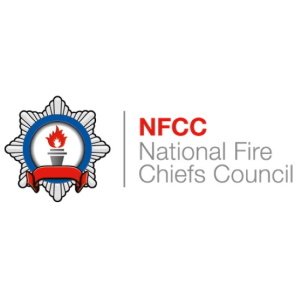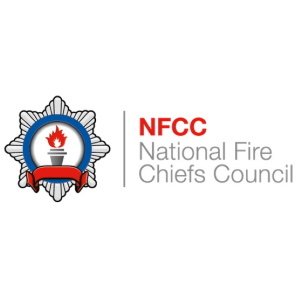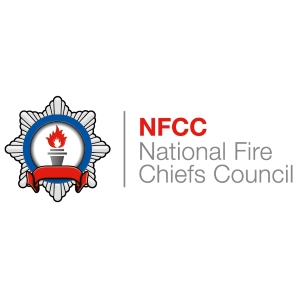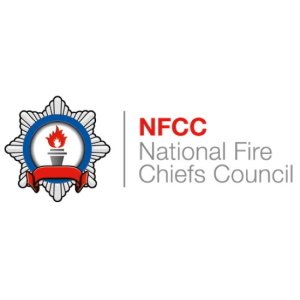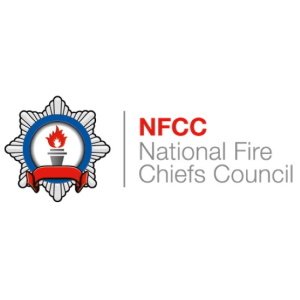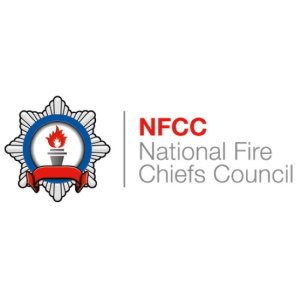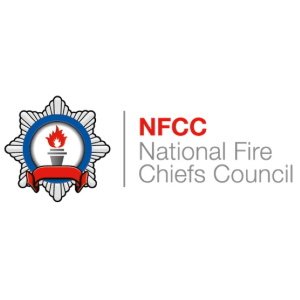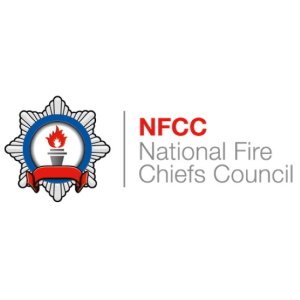NFCC - Experts & Thought Leaders
Latest National Fire Chiefs Council (NFCC) news & announcements
The National Fire Chiefs Council (NFCC) has welcomed the Fire Minister’s address to the NFCC Spring Conference this week, in which he set out the Government’s priorities for fire and rescue services and committed to reform being driven forward in collaboration with the sector. National Fire Chiefs Council (NFCC) Chair, Phil Garrigan, said, “We are really pushing decision makers to recognize the huge value and contribution of our fire and rescue services, so we welcome the Minister’s commitment to work in collaboration with us to drive improvements in our sector.” He adds, “We also welcome his appreciation of the growing challenges the sector faces and his recognition of the need to strengthen the infrastructure that supports fire and rescue services to deliver better outcomes more consistently.” Culture and leadership “I want to echo the Minister’s strong emphasis on culture and leadership, the recognition that our people are our greatest asset and the need to do more to see improvements in culture,” continued Phil Garrigan. He adds, “Fire and rescue services demonstrate professionalism, compassion and integrity every day - at home and internationally. The Minister’s recognition of the collective character of our workforce is important and welcome.” Phil Garrigan continues, “As we move forward, it is vital that fire and rescue services are properly valued and do not become the forgotten emergency service. We remain committed to working with the Government to ensure the sector continues to evolve and meet the needs of our communities.” Four key priorities The Minister set out four key priorities for the Government: Providing strategic direction to the sector by revising the National Framework and by putting in place an improved process for reporting to Parliament. Establishing a new College of Fire and Rescue with the functions and capabilities to meet the sector’s needs. Driving productivity by identifying best practices and supporting workforce development, and by reviewing statutory duties where change may be needed. Seizing the opportunities for devolution and local government reorganization to improve governance, accountability, and delivery. Ministerial Advisory Group The Minister confirmed that the Ministerial Advisory Group would be central to delivering reforms The Minister confirmed that the Ministerial Advisory Group – formed of partners from across the sector - would be central to delivering these reforms. NFCC welcomed the Minister’s praise for national resilience capabilities and the work of the National Resilience and International Search and Rescue teams. These, he said, showed the 'collective character' of fire and rescues services and the best of the UK on the global stage. He also offered clear support for the hosting of the World Fire Congress in London in 2026, underlining the UK fire and rescue sector’s growing global influence. Workforce and culture On workforce and culture, the Minister emphasized that people are the fire and rescue service’s greatest asset. He acknowledged the significant work led by NFCC in this area, including the launch of the Core Code of Ethics and the creation of the People, Culture and Leadership Hub, but made clear that further progress is needed. The Minister also addressed building safety, reiterating the Government’s commitment that new housing must never come at the cost of safe homes. He confirmed the laying of regulations for Residential Personal Emergency Evacuation Plans and reaffirmed his commitment to continued engagement with disability groups and the Grenfell families. Spending Review While acknowledging ongoing work around the Spending Review, the Minister pledged to return to leaders soon with further details on the outcome for fire and rescue. NFCC reiterated its longstanding call for fire and rescue services to be properly valued and not become the 'forgotten emergency service'.
Sabrina Cohen-Hatton has been appointed as the new Chief Fire Officer to lead Hampshire and Isle of Wight Fire and Rescue Service, becoming the organization’s first female chief. Set to start her new role later this year following a handover period with current Chief Fire Officer, Neil Odin, Sabrina joins them from her position as chief of the neighboring fire service in West Sussex. Prior roles of Sabrina Sabrina, who has previously held senior fire service roles with London Fire Brigade and Surrey Fire and Rescue Service Sabrina, who has previously held senior fire service roles with London Fire Brigade and Surrey Fire and Rescue Service prior to joining West Sussex in 2019, was awarded the King’s Fire Service Medal for distinguished service and gallantry in the 2023 Birthday Honors. Speaking of her appointment, Sabrina said: “I am truly honored to have been appointed to lead Hampshire and Isle of Wight Fire and Rescue Service and am incredibly excited to begin this new role to ensure that the Service continues to deliver for the residents of Hampshire and the Isle of Wight." Service’s improvement plan Sabrina added: “I would like to formally put on record my thanks to the Service’s current Chief Fire Officer, Neil Odin, who I have been privileged to work alongside for many years. I know that his time leading the Service will leave a lasting legacy that I will work with to ensure that residents in Hampshire and the Isle of Wight are kept safe from the risk of fire and emergencies." “I am incredibly proud of the time that I spent at West Sussex Fire & Rescue Service, where I was equally as privileged to work with some incredible people as we worked together to deliver the Service’s improvement plan. It is with a heavy heart that I leave the Service, but know that I am leaving the Service in safe hands and I take with me many fond memories and friendships." “I am very much looking forward to working with all colleagues at Hampshire and Isle of Wight Fire and Rescue Service to uphold all of the fantastic work that all of its teams deliver each and every day to keep the residents living and working in its communities safe.” Chief Fire Officer for Hampshire and the Isle of Wight Hampshire and Isle of Wight Fire Authority Chairman, Cllr Rhydian Vaughan MBE said: “I am pleased to announce the appointment of Sabrina as our new chief fire officer for Hampshire and Isle of Wight. The role of chief fire officer is one of huge responsibility, and following our rigorous recruitment process, I am certain Sabrina is the right person to lead us forward.” “I am very much looking forward to welcoming Sabrina when she formally joins us later this year. As a fire authority we look forward to working with her and to support her in being at the helm of this incredible organization." Sabrina joined South Wales Fire and Rescue Sabrina joined South Wales Fire and Rescue at 18 years old in 2001 after sharing homelessness from the age of 15 Sabrina joined South Wales Fire and Rescue at 18-years-old in 2001 after experiencing homelessness from the age of 15. Selling the Big Issue, she developed a curiosity to serve in the fire service in the hope of being able to help people when they needed it most. As well as being an ambassador for The Big Issue, she is also an advocate of Prince William’s Homewards foundation, and during her time at South Wales, led a partnership of uniformed youth groups of which HRH King Charles (then The Prince of Wales) was patron. Educational Background of Sabrina In her time working in the fire sector, Sabrina has completed numerous secondments, including to the Welsh Government, HMICFRS, interim Deputy Chief Fire Officer in Surrey and currently serves as the NFCC’s Improvement Chair and National Lead for Working Dogs. Alongside serving, Sabrina has studied psychology at both the Open University and Cardiff University, completing a PhD in Behavioral Neuroscience, and has since been awarded numerous honorary doctorates. Several significant incidents Sabrina was appointed as a Deputy Assistant Commissioner in the London Fire Brigade As well being a published author, her research into the decision-making of incident commanders has received many academic accolades and influenced policy change across the world. In 2015, Sabrina was appointed as a Deputy Assistant Commissioner in the London Fire Brigade, where she was a commander in the response to several significant incidents, including the Westminster Bridge and Finsbury Park terror attacks, and in the aftermath of the Grenfell Tower fire. Following a 34-year career in the fire service, Neil Odin is due to retire after more than seven years in the top job. Sabrina leadership skills Neil said: “As well as her commendable and notable professional successes over more than two decades, I have also had the privilege of working with Sabrina for many years." “Embodying our Service Values, Sabrina will bring a fresh outlook, strong leadership skills, and invaluable experience, ensuring the Service continues to adapt, improve and thrive. I know that she will find Hampshire and Isle of Wight a great place to work, and receive a warm welcome from the staff, partners and communities.”
A convoy of UK fire and rescue services delivering over 15,000 pieces of life-saving firefighting equipment to Ukrainian firefighters is leaving now. 30 fire and rescue vehicles, including 26 fire engines, will also be donated. 18 fire and rescue services from across the UK are participating in the convoy, organized by FIRE AID, National Resilience and International Search and Rescue (based out of Merseyside Fire and Rescue Service), HM Government, National Fire Chiefs Council (NFCC) and the Fire Industry Association (FIA). Impact on Ukrainian firefighters The convoy, which is the eighth and largest of its kind, is sponsored by the UK government The convoy, which is the eighth and largest of its kind, is sponsored by the UK government. It will add to the 119 fire and rescue vehicles and 200,000 pieces of firefighting equipment that have already been donated since the invasion began. The war in Ukraine has had a devastating impact on Ukrainian firefighters. Latest figures from the State Emergency Services of Ukraine show that since the start of the full-scale invasion in 2022, 100 firefighters have been killed and a further 431 injured, whilst four are currently in captivity and one is missing. English and Welsh fire and rescue services Meanwhile, 411 firehouses and 1,700 fire vehicles have been destroyed, and 95 firehouses are now in occupied territories. Despite these challenges, Ukrainian firefighters continue to operate in the war zone - not to engage in combat, but to save lives and protect property, often at great personal risk. English and Welsh fire and rescue services have donated all the appliances and kit for the eighth convoy, which ranges from basic firefighting equipment such as hoses, PPE, and road traffic collision equipment. About 100 volunteers, drawn from fire and rescue services and FIRE AID, will participate in the convoy. Firefighters in the war zone About 100 soldiers, drawn from fire and rescue services and FIRE AID, will participate in the convoy The Minister of State for Building Safety and Fire, Alex Norris, said: "The UK remains steadfast in its support for Ukraine. Firefighters are in the war zone, risking their lives to protect communities under the most challenging conditions." "This convoy delivers essential equipment to help them carry out their life-saving work, and we will continue to stand with them for as long as it takes." Latest donation of fire engines and equipment National Fire Chiefs Council (NFCC) Chair, Phil Garrigan, said: “We stand in solidarity with our colleagues in Ukraine, as they continue to operate in extraordinarily difficult and dangerous conditions.” “This latest donation of fire engines and equipment will help replace some of what has been lost in the full-scale war, offering essential support to firefighters who are relentlessly striving to save lives and keep communities safe despite overwhelming challenges. We are deeply proud to contribute in a small but meaningful way to ensuring that our colleagues have the resources they need to carry out their vital work." Life-saving missions First Deputy Head of the State Emergency Service of Ukraine, Vitalii Myroniuk, said: “The people and Government of the United Kingdom were among the first to stand shoulder to shoulder with Ukraine at a time when the whole world was uncertain whether we would endure the onslaught." "Your support in the critical early days of Russia's invasion allowed us to replace outdated equipment with modern British technology, enabling us to carry out our life-saving missions more quickly and effectively in wartime conditions." "We are immensely grateful for your solidarity and for understanding the challenges we face and the conditions in which we operate. Every Ukrainian rescuer works tirelessly to safeguard our statehood and our nation. And we are able to endure thanks to our British friends, who share our common values of freedom and the rule of law.” FIREAID and partners support Ukrainian firefighters FIRE AID Chair, David O’Neill MBE, said: "We continue to stand shoulder to shoulder with Ukraine; our fire family is committed to giving ongoing support and a lifeline in their time of need. This eighth convoy - the largest yet - is absolutely vital as the news about the conflict unfolds and changes daily." "Recently, we welcomed our frontline and political colleagues from Ukraine to the United Kingdom, the unimaginable challenges they face daily is devastating." "FIREAID and partners continue to work tirelessly to support Ukrainian firefighters. The statistics are staggering; more than 100 firefighters have lost their lives, with hundreds injured. Our work is far from done. We remain committed to Ukraine and will continue to offer our unwavering support and assistance to their firefighters risking their lives daily." Firefighting colleagues in Ukraine Fire Industry Association (FIA) Chief Executive Officer, Ian Moore OBE JP, said: "Firefighters in Ukraine continue to demonstrate extraordinary courage under the most challenging circumstances. Every day, they put their lives on the line to protect their communities, often with limited resources and in the face of immense danger." “The FIA is honored to support this vital initiative, ensuring that life-saving equipment reaches those who need it most. By working alongside our partners in the UK fire sector, we are not only providing essential tools but also reinforcing a message of solidarity. Our commitment to supporting our firefighting colleagues in Ukraine remains steadfast."
Insights & Opinions from thought leaders at NFCC
During the Grenfell Tower fire incident in 2017, ineffective fire doors allowed smoke and toxic gases to spread through the building more quickly than should have been possible. Sir Martin Moore-Bick made this finding in the conclusion to Phase 1 of the Grenfell Tower Inquiry. It serves to highlight the importance that fire doors play in protecting life and property. Grenfell Inquiry findings The Grenfell Inquiry findings have impacted subsequent United Kingdom government guidance and proposed legislation. For example, the Ministry of Housing, Communities and Local Government (MHCLG) insists that non-fire resisting doors should be replaced immediately with door sets that are third party certified as providing at least 30 minutes of fire resistance. The BWF works to increase ‘mass market’ awareness of the vital role that fire doors play in protecting life and property The British Woodworking Federation (BWF) works to increase ‘mass market’ awareness of the vital role that fire doors play in protecting life and property. The BWF sponsored Fire Door Safety Week (21-27 Sept. 2020) in partnership with the UK Home Office’s National Fire Safety Campaign, the National Fire Chiefs Council and London Fire Brigade. The observance is the brainchild of the British Woodworking Federation, supported by the BWF Fire Door Alliance. Importance of fire doors in protecting life and property While there are multiple types of fire doors available, certified timber fire doors were subjected to government fire tests in 2019 and were shown effective at meeting and exceeding the minimum burn time requirement of 30 minutes. Factors to ensure a fire door performs as intended include product manufacture, quality, installation and maintenance. Correctly specifying, maintaining and managing a fire door can mean the difference between life and death for building occupants in an emergency. Appointing ‘Responsible Person’ to inspect fire doors Everyone plays a role to ensure a fire door performs as intended, from the manufacturer to a building’s users. Building owners should appoint a ‘Responsible Person’ to check the performance of fire doors. Propping open a fire door keeps it from performing as intended in the event of a fire. Fire doors and other passive fire protection industries have common interests with other fire-related organizations. More education can help the whole building industry and every property owner to understand the importance of fire doors. Regular inspection of fire doors Owners should carry out checks at three-month intervals to ensure all fire doors are fitted with effective self-closing devices Sir Martin Moore-Bick also recommended that those who have responsibility for entrance doors to individual flats in high-rise building should be required by law to ensure such doors comply with current standards. Owners and managers of any residential building that contains separate dwellings should carry out an urgent inspection of all fire doors to ensure they comply with applicable standards. Owners and managers should also be required to carry out checks at three-month intervals to ensure all fire doors are fitted with effective self-closing devices that are in working order. Raising standard of fire doors via Third party certification Third party certification is the best way to raise the standard of fire doors and fire door sets across the board to ensure all fire doors in any building type meet safety standards. Also, inspections should be carried out by trained and registered professionals who identify any faults and highlight where doors do not meet standards. Doors in high-traffic areas should be checked more frequently as they are more susceptible to damage.
The fire industry has made it absolutely clear, led by authorized bodies including the BAFE Fire Safety Register, that the current pandemic does not remove the need to comply with any fire safety requirements under the Building Regulations. As we now look beyond the lockdown period, John Allam, Operations Director at Amthal Fire and Security reviews the raft of new proposals demonstrating the Government and industry’s commitment to compliant fire safety and new immediate demands placed on responsible persons. Multi-Occupancy residential buildings Whilst the second phase of the Grenfell Tower Inquiry has been put on hold until July at the earliest over coronavirus restrictions, the government has continued its quest to effect change and bring the Fire Safety Bill and Building Safety Bill into legislation. While the Building Safety Bill will ‘place new and enhanced regulatory regimes for building safety and construction products’, both bills aim to strengthen the ‘whole regulatory system’ for both building and fire safety. The Fire Safety Bill will apply to England and Wales, to amend the Fire Safety Order 2005 and seeks to clarify responsibility for reducing fire risk in multi-occupancy residential buildings. The details of the Fire Safety Bill, which has now had its second reading in the House of Commons, includes recommendations of regular inspections of lifts and sprinkler systems for buildings over 11m tall. Quarterly fire door inspections Building owners will now face ‘enforcement action’ from emergency services if they do not manage fire risk Significantly, it also introduces compulsory quarterly fire door inspections, which is a hugely significant development in its own right, to influence an industry where this is no specific legislation that requires fire doors to be checked. The Fire Safety Bill intends to ensure evacuation plans are reviewed, regularly updated and communicated to residents in a ‘form that they can be reasonably be expected to understand.’ And it highlights the importance of individual flat entrance doors, where the external walls of the building have unsafe cladding, comply with current standards. This will play a key part in increasing residents’ fire safety, whereby building owners will now face ‘enforcement action’ from emergency services if they do not manage fire risk in a building’s structure. Improving the fire safety of buildings In addition, the government is consulting with the National Fire Chiefs Council to begin testing evacuation alert systems for high-rise blocks of flats, which could support fire and rescue services’ operational response by alerting residents if they need to escape. The National Fire Chiefs Council to begin testing evacuation alert systems for high-rise blocks of flats The new program will be governed by a Building Safety Regulator (BSR) that will initially be led by Dame Judith Hackitt during the set up phase, who will be tasked with improving the fire safety of buildings. Launched by The RT Hon Robert Jenrick MP Secretary Of State for Housing, Communities and Local Government, he cited the new program as taking, “Ambitious steps to further reform the building safety system with the biggest changes in a generation to ensure residents are safe in their homes.” He added: “This new regime will put residents’ safety at its heart, and follows the announcement of the unprecedented £1 billion fund for removing unsafe cladding from high-rise buildings in the budget.” Major regulatory decisions The BSR will be responsible for all major regulatory decisions made at key points during design, construction, occupation and refurbishment of buildings. And such decisions and obligations must be upheld and maintained throughout a development’s life. The new safety case regime will apply not only to new buildings, but also to buildings that are already in use" In Dame Judith’s own words: “When introduced by the new regulator, the new safety case regime will apply not only to new buildings, but also to buildings that are already in use and occupied. If those buildings were built to poor standards in the past, it will not be the case that you can simply say ‘well it complied with building regulations at the time’. The test will be different. The test will be ‘is this building safe to be occupied?’ and, if not, what are you going to do to improve it?’ … People will be asked to think about what they can do, what is reasonable and what is practicable to do in order to improve the safety of a given building.” Regulating the fire safety industry Both Hackitt and the Government want the BSR to be set up in shadow form before the Building Safety Bill becomes law. The plan is to put the bill before Parliament by the autumn, despite the challenges thrown by the Pandemic. The new legislation proposed by Government will undoubtedly ensure that buildings and those that live and work in them are maintained to be fire safe. In the words of BAFE CEO Stephen Adams: “The time is right to help better regulate the fire safety industry to change end user behavior and create a UK that's safer from the devastating effects of fire.” As BAFE further attests, as lockdown measures begin to be lifted, there will be a need for the competent maintenance of fire safety systems/provisions and fire risk assessment work. Fire doors and risk assessments Amthal is working closely with building owners and managers across the UK to deliver the benefits of safer environment This means for those who own or manage residential buildings, will soon be ‘held into account’ if they do not ensure fire safety in their buildings, and the requirements will impact further on costs and resource allocation, for investigating buildings and ensuring compliance. There is a definite sense to be proactive in acceptance of the new impending legislation. But the concern cited amongst building owners is the industry’s ability to undertake the volume of assessments required, given the lack of current lack of specific legislation on specific elements such as fire doors and risk assessments, together with the steep expectations for fire strategy and evacuation plans. Amthal is working closely with building owners and managers across the UK to deliver the benefits of safer environment within a holistic fire safety approach. Working in partnership, means taking the time to understand the implications of the Government’s Fire Safety Bill, alongside the implications of the Building Safety Bill and BSR program. This way, we can ensure responsible persons confidently achieve all operational requirements for the ultimate benefit of residents’ peace of mind.
The New Future For Fire Agencies
DownloadThe Eight Key Trends in Fire Detection in 2023
DownloadA Digital Platform to Improve Fire Safety Compliance and Inspections
DownloadOvercoming the Challenges of Fire Safety in the Paper Industry
DownloadCarbon Monoxide: Creeping Killer Caught In The Act
Download